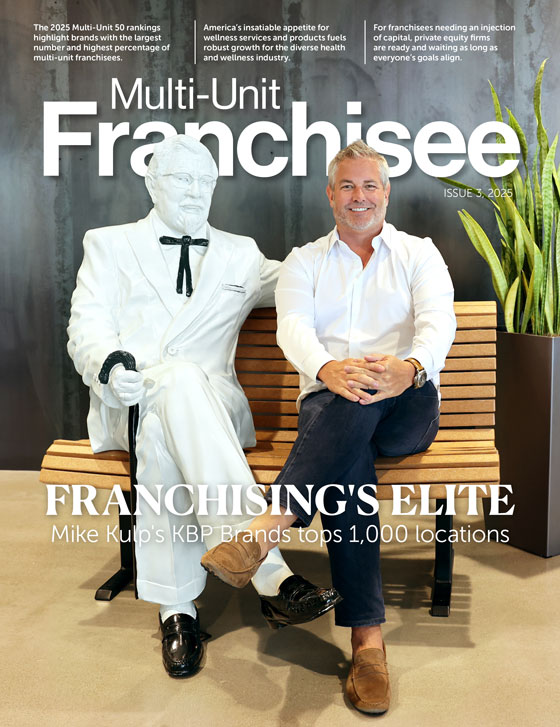Avoiding Litigation: Dialogue and social capital can often resolve disputes

Certain franchise disputes can only be resolved through litigation. Those disputes often include matters of system-wide importance, such as franchisors requiring the purchase and use of certain technology. However, the vast majority of franchise disputes can and should be resolved without litigation. The key is for franchisors and franchisees to commit to using best practices.
Franchise disputes arise when conflict is not resolved effectively. Conflict within a franchise system is not necessarily negative. It can be healthy if it leads to the right outcomes. It all depends on how a conflict is addressed and resolved:
- Is there constructive dialogue to explore potential solutions?
- Or do the parties focus on winning the conflict?
Dialogue is not franchisors and franchisees talking at each other, trying to convince the other that they are right. Dialogue embraces the reality that franchisor and franchisee interests, roles, and responsibilities are similar in some respects and quite different in others. Dialogue is listening to one another—actually listening! Franchise relationships fail, and litigation often follows, if franchisors and franchisees do not adequately address breakdowns with constructive dialogue and a collaborative focus on finding solutions. When parties stop actively listening and communicating with one another, they resort to litigation or legislation.
Good faith
A proper respect and understanding of social capital are essential components of active listening, dialogue, and collaboration. It is not about warm and cuddly feelings. Rather, social capital encompasses a wide variety of specific benefits that flow from trust, reciprocity, information sharing, collaboration, and cooperation.
Reciprocity is one person doing something for another without knowing if or when the favor will be returned. Trust in franchising is the sense of giving each other the benefit of the doubt. Positive things can happen when franchisees and franchisors assume the other is acting in good faith until proven otherwise. They also happen when a franchisor empowers franchisees without giving up control or decision-making authority.
Highly effective leaders make social capital a fundamental cornerstone when dealing with any of the system’s stakeholders. This open and thoughtful approach becomes part of the system’s culture, its DNA.
Cause and effect
Leaders are always looking for different ways of doing things to improve performance, efficiency, and profitability. It’s important for franchisors to take a critical look at how any potential change affects franchisees. Potential questions include:
- Do leaders fully embrace an attitude and culture of collaboration? Or are they focused on command and control, where the franchisor announces a decision to franchisees without any meaningful input?
- How many practices are in place because that is the way they’ve always been done? • How many rules are designed to keep something from happening instead of accomplishing something?
System standards are a key concern. Not surprisingly, they are often at the heart of a dispute. If the focus of the majority of system standards is geared more toward compliance for the sake of compliance rather than building the brand and the franchisees’ bottom line, then there is an opportunity for improvement.
It’s not just about franchisors. Franchisees should ask themselves similar questions about how to approach key issues that affect their businesses and their relationships with franchisors. It’s smart to get team members involved in understanding the franchisors’ perspectives and finding ways to align.
This commitment to effective dialogue and social capital will lead to resolving more disputes without resorting to litigation. Rate your system on a scale of 0 to 10 with 0 being what happens when people engage in conversations to prove their point of view and 10 being what happens when people explore other points of view and choose what is best for all with no personal attachments or fears.
How often in a franchisor-franchisee conflict does each side get attached to their perspectives without fully exploring other points of view? Walking in someone else’s footsteps and seeing things through their eyes often leads to creative solutions, which will lead to better outcomes and less litigation.
As I often say, resolving disputes is about the right people having the right conversations at the right times.
Brian Schnell is the chair of Faegre Drinker’s franchise practice. He is passionate about franchising and has more than 35 years of experience focusing on finding solutions to challenges and opportunities for clients. He is also the chair of IFA’s Franchise Relations Committee.
Share this Feature
Recommended Reading:
| ADVERTISE | SPONSORED CONTENT |
FRANCHISE TOPICS
- Multi-Unit Franchising
- Get Started in Franchising
- Franchise Growth
- Franchise Operations
- Open New Units
- Franchise Leadership
- Franchise Marketing
- Technology
- Franchise Law
- Franchise Awards
- Franchise Rankings
- Franchise Trends
- Franchise Development
- Featured Franchise Stories
FEATURED IN

Multi-Unit Franchisee Magazine: Issue 3, 2025
| ADVERTISE | SPONSORED CONTENT |

$30,000
$400,000





 The multi-unit franchise opportunities listed above are not related to or endorsed by Multi-Unit Franchisee or Franchise Update Media Group. We are not engaged in, supporting, or endorsing any specific franchise, business opportunity, company or individual. No statement in this site is to be construed as a recommendation. We encourage prospective franchise buyers to perform extensive due diligence when considering a franchise opportunity.
The multi-unit franchise opportunities listed above are not related to or endorsed by Multi-Unit Franchisee or Franchise Update Media Group. We are not engaged in, supporting, or endorsing any specific franchise, business opportunity, company or individual. No statement in this site is to be construed as a recommendation. We encourage prospective franchise buyers to perform extensive due diligence when considering a franchise opportunity.